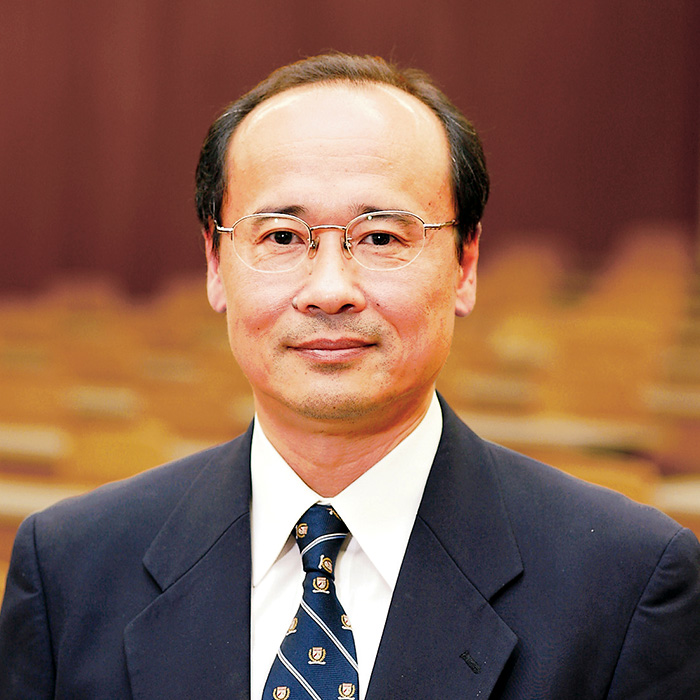
略歴
1982年 東京工業大学 理学部 卒業
1987年 同大学院理工学研究科博士課程単位取得退学
主要業績
論 文
“A Polynomial-Time Algorithm to Find von Neumann-Morgenstern Stable Matchings in Marriage Games”, Algorithmica, vol.58, no.1, 2010.
“Cooperative Game(Von Nuemann-Morgenstern Stable Sets)”,(joint with Shigeo Muto)In Meyers, Robert(Ed.)Encyclopedia of Complexity and Systems Science,(2009)pp 1518-1532. Springer New York.
“A note on existence and uniqueness of vNM stable sets in marriage games”, ICALP 2008 Proceedings of Workshop: Matching Under Preferences-Algorithms and Complexity,(2008), 157-168.
“On the Nonexistence of vNM Stable Sets in an Exchange Economy with Indivisible Goods,”(joint with T. Irisawa and K. Matsumoto)Discussion paper, Gakushuin University.
“Another Proof That Assignment Games Have Singleton Cores Only If Multiple Optimal Matchings Exist,” Economic Theory, vol. 29, no. 1, 2006.
“Coalition-Proof Nash Allocation in a Barter Game with Multiple Indivisible Goods,” Mathematical Social Sciences, vol. 49, no. 2, 2005.
“On House-swapping, the Strict Core, Segmentation, and Linear Programming,”(joint with Thomas Quint), Mathematics of Operation Researches, vol. 29, no. 4, 2004.
“Two Examples in a Market with Two Types of Indivisible Good,”(joint with Thomas Quint), Journal of the Operations Research Society of Japan, vol. 46, no. 1, 2003.
“On the Shapley-Scarf Economy: the Case of Multiple Types of Indivisible Goods,”(joint with Hideo Konishi and Thomas Quint), Journal of Mathematical Economics, vol. 35, no. 1, 2001.
“Coalition-Proofness of the Competitive Allocations in an Indivisible Goods Market” in Topics in Mathematical Economics and Game Theory: Essay in honor of Robert J. Aumann(Fields Institute communications vol. 23, American Math Soc.), 1999.
“Some Properties of Weak Domination in an Exchange Market with Indivisible Goods,” Japanese Economic Review, vol. 42, no. 4, December 1991.
“Strong Core and Competitive Equilibria of an Exchange Market with Indivisible Goods,” International Economic Review, vol. 32, no. 4, November 1991.
“A Note on the Strong Core of a Market with Indivisible Goods,” Journal of Mathematical Economics, vol. 13, 1984.
“A Note on the Competitive Allocations in a Market with Indivisible Goods,” Discussion Paper No. 339, 大阪大学社会経済研究所,1994.
学外での活動
日本経済学会会員、日本オペレーションズリサーチ学会会員
講義・演習の運営方針
大学院における講義では、近年の研究結果を掲載している上級のゲーム理論のテキストを丹念に読み進め、ゲーム理論を用いた経済研究の進め方とゲーム理論の数学的構造をより深く理解することを目指します。
また、修士論文や特定課題研究論文を作成する学生諸君に対しては、研究テーマに沿った学術論文や調査資料を推薦します。そして、先行研究をよく理解して自分の研究に生かすことを学んでもらいます。
メッセージ
何らかの組み合わせを見て、うまくマッチしているとか、してないとか言うことが良くあります。うまい組み合わせを作ることは、我々の経済社会でも、企業家が投資家と提携したり、或いは、大学生が就職する会社を決めたり、研修医が研修病院を決めたりする場合に、全員が真剣に挑む重要な問題となります。2つのグループに分かれているプレイヤーがお互いに良い組み合わせを得ようとする状況をマッチングと呼びます。
マッチングにおける良い結果とは何か?仮に各プレイヤーにパートナーを提示しても、現状より望ましいと互いに考えるペアが存在すれば、それは安定な結果とはならないでしょう。所与のマッチング問題に対して、この様な不満が出来る限り解消されている結果を与える社会的制度は構築できるのでしょうか?
私はゲーム理論を用いたマッチング問題の研究を続けています。マッチング問題は、ゲーム理論や経済学だけでなく、最適化アルゴリズム等のコンピュータサイエンスにおいても広く研究されています。また、我国の医師臨床研修制度では、マッチング理論を応用した「研修医マッチング」が実施されており、毎年8千人を超える新医師が研修病院を決定するのに役立っています。大学院では、この様な研究を皆さんと共に進めていきたいと思います。